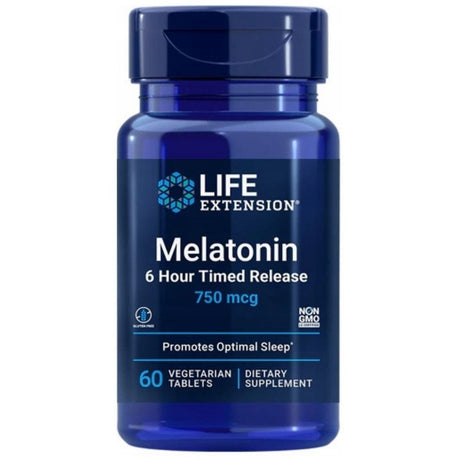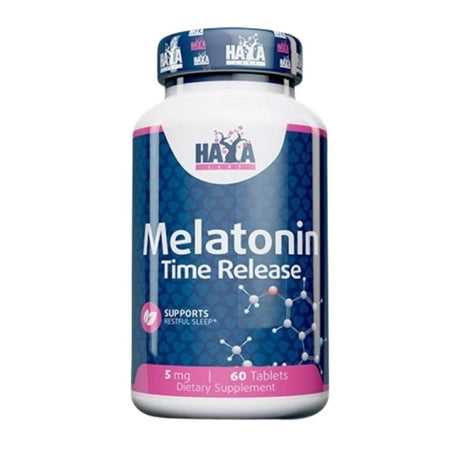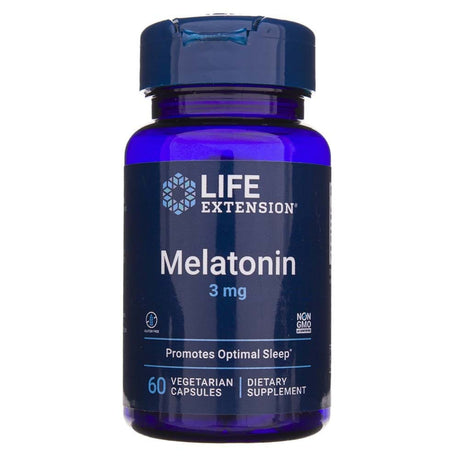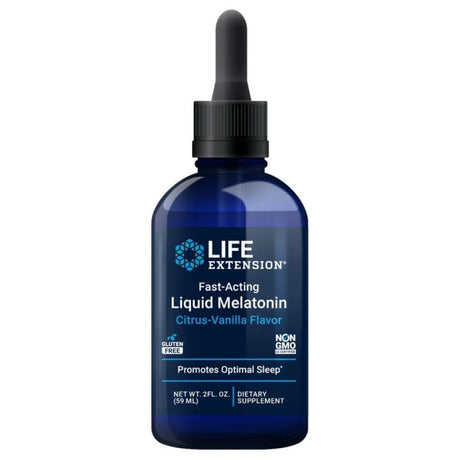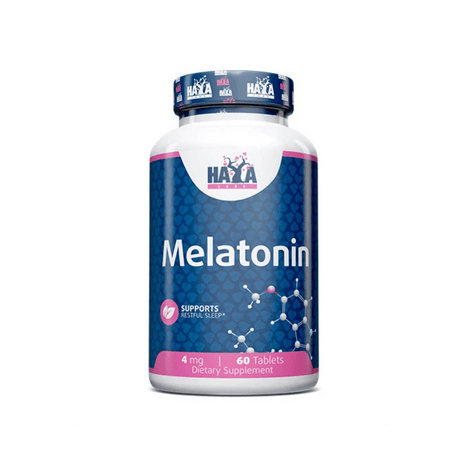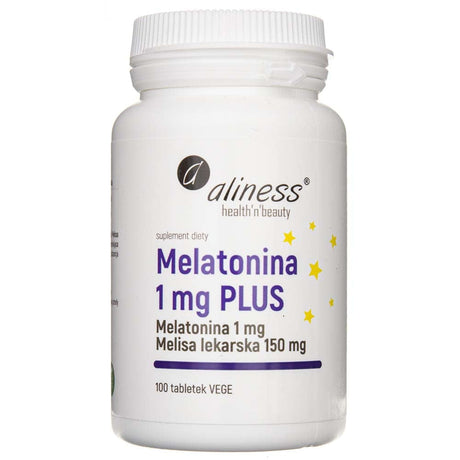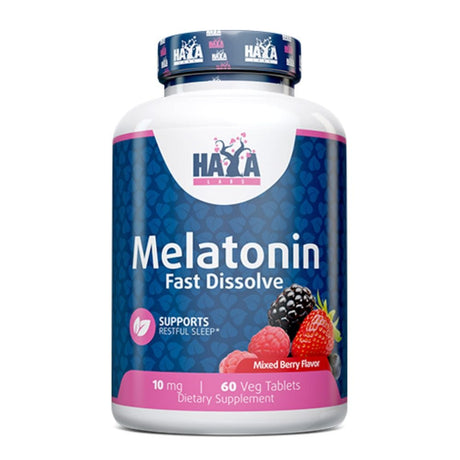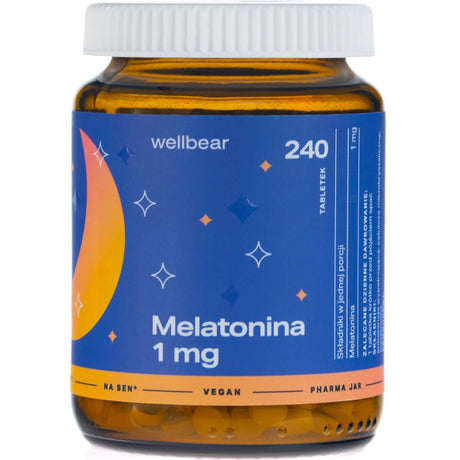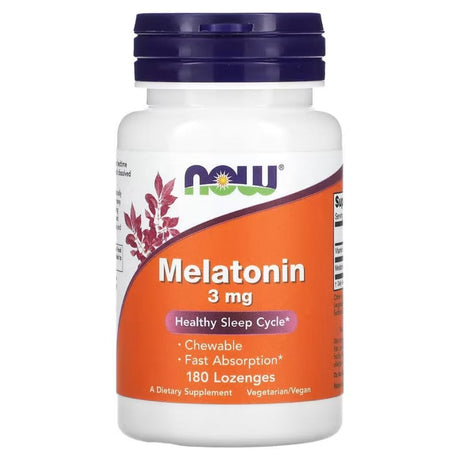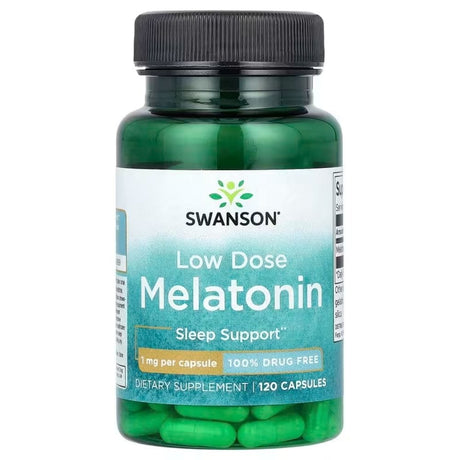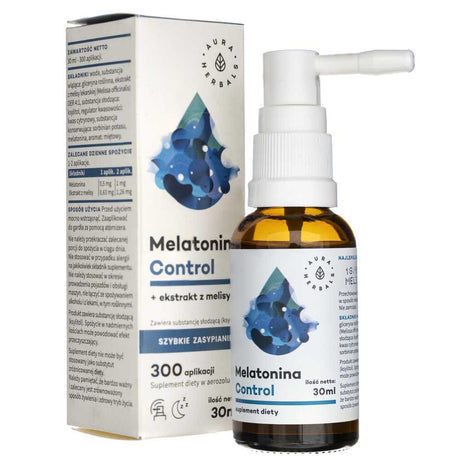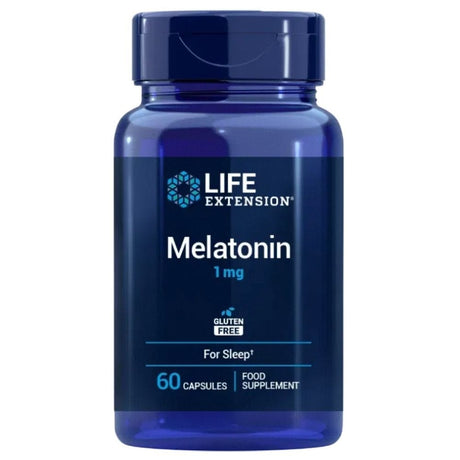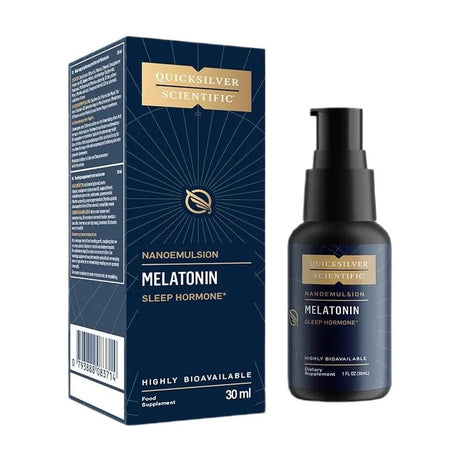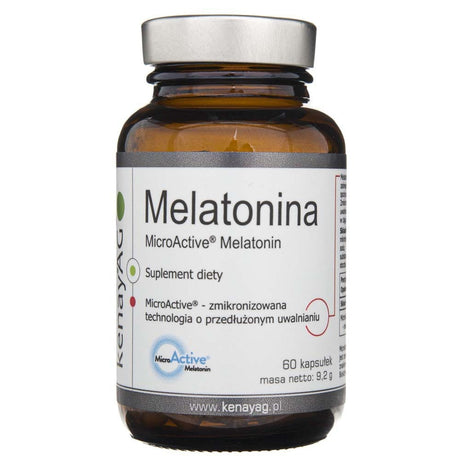Ostrovit
Ostrovit Melatonin 1 mg - 180 Tablets
Sale price €3.41 Regular price €3.79Unit price€0.02 eachLife Extension
Life Extension Melatonin 6 Hour Timed Release 750 mcg - 60 Tablets
Regular price €12.49Unit price€0.21 eachHaya Labs
Haya Labs Melatonin Time Release 5 mg - 60 Tablets
Regular price €4.99Unit price€0.08 eachLife Extension
Life Extension Melatonin 3 mg - 60 Veg Capsules
Regular price €12.69Unit price€0.21 eachLife Extension
Life Extension Fast-Acting Liquid Melatonin - 59 ml
Regular price €14.59Unit price€24.73 /100mlHaya Labs
Haya Labs Melatonin Fast Dissolve 10 mg, Mixed Berry - 60 Tablets
Regular price €6.29Unit price€0.10 eachAura Herbals
Aura Herbals Melatonin Control + Lemon Balm Extract - 30 ml
Regular price €8.59Unit price€286.33 /LLife Extension
Life Extension Melatonin 1 mg - 60 Capsules
Regular price €10.49Unit price€0.17 eachOsavi
Osavi Melatonin with Passiflora Oral Spray 1 mg - 25 ml
Regular price €11.59Unit price€4.64 /10mlQuicksilver
Quicksilver Liposomal Melatonin 1 mg, Mint-Orange - 30 ml
Regular price €37.09Unit price€123.63 /100ml
Melatonin: The Natural Sleep Hormone for Insomnia Relief
Melatonin, a tryptophan derivative, is a naturally occurring substance produced in the body's pineal gland. It plays a crucial role in regulating the circadian rhythm, which affects periods of wakefulness and sleep. Often referred to as the "sleep hormone" or "darkness hormone," melatonin is essential for initiating and maintaining quality sleep.
How Melatonin Works: Properties and Mode of Action
Melatonin secretion follows a specific pattern:
- Begins between 9 and 10 pm
- Peaks between 2 and 4 am (deepest sleep)
- Decreases between 7 and 9 am (promoting wakefulness)
The pineal gland is stimulated to produce melatonin by darkness, while light inhibits its production. This natural cycle helps maintain the body's sleep-wake rhythm, crucial for overall health.
Age-Related Changes in Melatonin Production
Melatonin production varies with age:
- Infants: Secretion increases after 20 weeks, establishing a toddler's diurnal cycle
- Ages 3-5: Highest melatonin production, supporting crucial developmental sleep
- Older adults: Decreased production due to pineal gland calcification, often leading to sleep issues
Melatonin and Sleep: A Crucial Relationship
Melatonin is essential for healthy sleep patterns. However, modern lifestyles can disrupt its natural production:
- Increased exposure to artificial light, especially from electronic devices
- Sleeping in lit rooms
- Sedentary lifestyles
- Limited daytime sun exposure
These factors can lead to difficulty falling asleep and potential insomnia. Melatonin supplementation has shown benefits for people with sleep disorders, including improved sleep quality and duration, and reduced blood pressure and muscle tension during REM sleep.
Symptoms of Melatonin Deficiency
Common signs of melatonin deficiency include:
- Difficulty falling asleep
- Daytime fatigue and sleepiness
- Poor concentration and distractibility
- Headaches
- Irritability and mood swings
- Trouble waking up in the morning
Symptoms of Melatonin Excess
While less common, excess melatonin can occur due to certain conditions or supplement overdose, causing:
- Nightmares
- Depressive states
- Nausea
Melatonin Supplementation: Forms and Dosage
Melatonin supplements are available in various forms:
- Tablets (1, 3, or 5 mg doses)
- Sprays
These can be purchased as over-the-counter medicines or dietary supplements. However, it's advisable to consult a healthcare professional before starting supplementation.
Proper Melatonin Dosage
Dosage should be individually determined, but general guidelines include:
- Common doses: 1-3 mg daily, less commonly 5 mg
- Timing: Take in the evening, at least one hour before bedtime
- Duration: Effects may be observed after approximately 2 weeks of consistent use
Contraindications for Melatonin Supplementation
Melatonin should be avoided by individuals with:
- Alcohol abuse issues
- Hypersensitivity to the hormone
- Pregnancy or breastfeeding
Caution is advised for those with:
- Liver disease
- Depression
- Epilepsy
- Endocrine disorders
- Kidney problems
- Immune system dysfunction
Always consult a healthcare professional before starting melatonin supplementation, especially if you have any pre-existing health conditions or are taking other medications.









